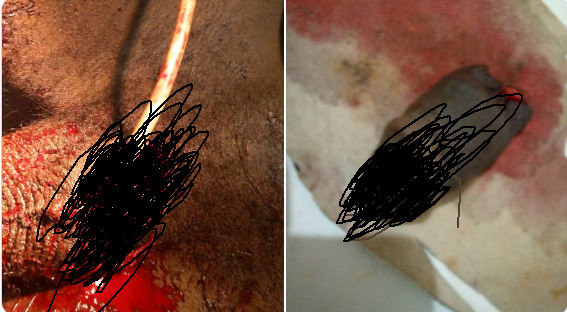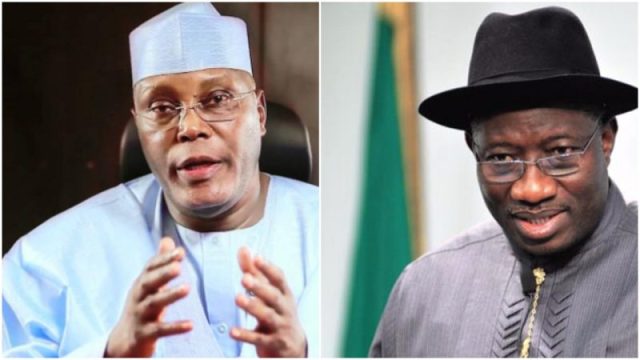Nigeria@60: Notable events in Nigeria’s history from 1960 till date
As Nigeria marks its 60th anniversary,here is a timeline of events that have occurred from 1960 till date.
1960 The period of nationalism and decolonization
ended and in 1 October, Nigeria gained independence from Britain under Prime
Minister Tafawa Balewa and President Nnamdi Azikiwe.
1963 In 1 October, Nigeria severed its
remaining ties to Britain, marking the birth of the Nigerian First Republic.
1964 -1 December,National parliamentary
election.
-SAFRAP
and AGIP receive offshore oil licenses.
1965 Elections held in Western Region.
Refinery
completed at Port Harcourt; owned 60% by Federal Government, 40% by Shell
1966 15 January, a military coup deposed the
government of the First Republic. Balewa, Premier of Northern Nigeria Ahmadu
Bello, and Finance Minister Festus Okotie-Eboh, were assassinated.
16
January, the Federal Military Government was formed, with General Johnson
Aguiyi-Ironsi acting as head of state and Supreme Commander of the Federal
Republic.
23
February, Isaac Adaka Boro declared the secession of the "Niger Delta
Republic". The secession was crushed by Ojukwu and 159 men were killed.
29 July,
a counter-coup by military officers of northern extraction deposed the Federal
Military Government. Aguiyi-Ironsi and Adekunle Fajuyi, Military Governor of
the Western Region, were assassinated. General Yakubu Gowon became President.
1967 Killings of people of Eastern Nigerian
origin claimed the lives of many thousands mostlyChristian Igbo people.This was
carried out by the Muslim Hausa and Fula people. This triggered a migration of
the Igbo back to the East.
27 May, Gowon
announces further subdivision of Nigeria, into twelve states. These include
subdivision of the Eastern Region which will undermine its political power.
30 May, Nigerian-Biafran
War: General Chukwuemeka Odumegwu Ojukwu, Military Governor of Eastern Nigeria,
declared his province an independent republic called Biafra.
1970 8 January, Ojukwu fled into exile. His
deputy Philip Effiong became acting President of Biafra
15
January, Effiong surrendered to Nigerian forces. Biafra was reintegrated into
Nigeria.
1971 Nigeria joins Organization of Petroleum
Exporting Countries.
1973 22 January, a plane crashed in Kano,
Nigeria, killing 176 people.
1975 29 January, General Yakubu Gowon was
overthrown in a bloodless coup. General Murtala Mohammed became Head of State.
1976 13 February, Mohammed was assassinated on
his way to work. His deputy, Lieutenant-General Olusegun Obasanjo, became Head
of State and set a date to end military rule.
1979 Shehu Shagari won election to the
Executive Presidency of the American-style Second Republic.
1
October, Shagari was sworn in as President.
1983 Shagari won reelection.
31
December, Shagari's government was ejected from power in a palace coup, marking
the end of the Second Republic. General Muhammadu Buhari became Head of State
and Chairman of the Supreme Military Council of Nigeria.
1984 17 April, the Buhari regime promulgated
Decree No. 4, the "Public Officer's Protection against False
Accusation" Decree, which made it an offence to ridicule the government by
publication of false information.
1985 Buhari was overthrown in a palace coup.
General Ibrahim Babangida became Head of State and President of the Armed
Forces Ruling Council of Nigeria.
1990 Middle Belt Christian officers, led by
Major Gideon Orkar, attempt to overthrow Babangida in an unsuccessful coup.
1992 Two political parties, the Social
Democratic Party (SDP) and the National Republican Convention (NRC) ware
established by Babangida in an attempt to return to civilian rule.
1993 12 June, Moshood Kashimawo Olawale Abiola
won a presidential election. Babangida annulled the results.
26 August, Babangida stepped down due
to pressure from the Armed Forces Ruling Council. Ernest Adegunle Oladeinde
Shonekan assumed power as Interim Head of State.
17
November, Shonekan was forced to resign from office. Defence Minister Sani
Abacha became Head of State and established the Provisional Ruling Council of
Nigeria.
1995 The Abacha administration arrested
Obasanjo for allegedly supporting a secret coup plot.
10
November, Human and environmental rights activist Ken Saro-Wiwa was hanged with
eight others.
1998 8 June Abacha
died from a heart attack. Abdusalami Abubakar became Head of State and Chairman
of the Provisional Ruling Council of Nigeria and lifted the ban on political
activity.
15 June,
Obasanjo was released from prison.
1999 10 February, Obasanjo was elected
President.
29 May Obasanjo was sworn in, ushering in the Fourth
Republic.
19
December, Obasanjo ordered the Nigerian Armed Forces to raid the town of Odi in
the Niger Delta, in response to the murder of twelve policemen by local
militia.
2000 27 January, Sharia was established in the
predominantly Muslim state of Zamfara.
May, Religious
riots erupted in Kaduna over the implementation of sharia.
5 June, the
Obasanjo administration established the Niger Delta Development Commission
(NDDC) to tackle human and ecological issues in the Niger Delta region of
Southern Nigeria.
2002 Religious riots erupt over the Miss World
pageant due to be hosted in Abuja.
10 October The
International Court of Justice (ICJ) ruled against Nigeria in favor of Cameroon
over the disputed oil-rich Bakassi peninsula territory.
2003 April Obasanjo won reelection as President.
29 May Obasanjo was
sworn in for a second term as President.
2004 Obasanjo declared a state of emergency in
response to the eruption of ethnoreligious violence in Plateau State.
2006 16 May, the National Assembly of Nigeria
voted against a Constitutional amendment to remove term limits.
13 June Obasanjo met
with Cameroonian President Paul Biya and Secretary General of the United
Nations Kofi Annan in New York City to resolve a dispute over Bakassi.
1 August Nigerian
troops began to pull out of Bakassi.
March through August Several
buildings collapse in Lagos killing 27 people.
2007 15 March, the Independent National
Electoral Commission (INEC) released the names of twenty-four approved
candidates for the presidential elections.
21 April Umaru
Yar'Adua, Governor of Katsina State, was elected President of Nigeria.
2009 23 November, President Umaru Yar'Adua
travels to Saudi Arabia to receive treatment for a heart condition. This
inspires a constitutional crises and calls for him to step down as he was
deemed unfit to continue in power.
2010, 5 May Umaru Yar'Adua, President of Nigeria
pronounced dead after a long illness. Goodluck Ebele Jonathan who was already
the Acting President at that time succeeds him. The Government of Nigeria
declares seven days of mourning.
1 October Nigeria
celebrates the Golden Jubilee of her independence (50 years). However, the
celebrations are hindered by two car bombings close to the Eagles' Square in
Abuja, where the elite had gathered to celebrate the golden jubilee.
2011 For the first time a citizen from a
minority region (South-South)of the country takes on the presidential position
after a successful election. The president (Dr Goodluck Jonathan) of the
People's Democratic Party (Nigeria) (PDP) won the election as people came out
massively to vote for him even in the South West part of the country.
2012 Nigerian President Goodluck Jonathan
declares a state of emergency in parts of the country hit by violence by Islamist
militant group Boko Haram.[1
Nigeria announces an end to its fuel subsidy scheme leading
the Nigeria Labour Congress to call for strikes and street protests.
Boko Haram issues a warning to Christians in northern
Nigeria to leave the region within three days.
Two bombs explode in Maiduguri with the Boko Haram movement
believed to be responsible.
January 5 - Islamist insurgency in Nigeria
Bombs explode in two northern Nigerian cities.
Gunmen attack a church in Gombe killing at least six people.
2013 A court in South Africa sentences
Nigerian militant Henry Okah to 24 years' imprisonment for his involvement in
the Abuja car bombings which killed at least 12 people in October 2010.
2014 A
Liberian official visiting Lagos dies of the Ebola virus becoming the first
reported death in Nigeria.
Nigeria's economy passes South Africa's to become the
largest in Africa.
276 female students were kidnapped from the Government
Secondary School in the town of Chibok in Borno State, by Boko Haram.
Nigeria becomes the third African nation to declare a state
of emergency over the outbreak.
2015 General elections were held in Nigeria on
28 and 29 March 2015, the fifth quadrennial election to be held since the end of
military rule in 1999. The incumbent president, Goodluck Jonathan sought his
second and final term.
It was the most expensive election ever to be held on the
African continent. Opposition candidate Muhammadu Buhari won the presidential
election by more than 2.5 million votes. Incumbent President Goodluck Jonathan
conceded defeat on 31 March, before the results from all 36 states had been
announced. The election marked the first time an incumbent president had lost
re-election in Nigeria. The President-elect was sworn-in on 29 May 2015,
marking the first time since Nigeria gained independence in 1960 that a sitting
government peacefully transferred power to an elected member of the opposition.
2016 Boko Haram militants shot and killed 7
people and burned down 10 houses in Madagali, Adamawa
12th Africa Movie Academy Awards took place in Port
Harcourt.
2017 Nigerian refugee camp bombing, resulted in 115
deaths according to official sources.
2018 Dapchi schoolgirls kidnapping
Over 100 people are killed in floods after two major rivers
burst their banks.
At least 30 people are killed when a pipeline caught fire
and explodes in southeast Nigeria after a raid by suspected petrol thieves.
Nigeria participated at the 2018 Winter Olympics in
PyeongChang, South Korea, with 3 competitors in 2 sports.
2019 General elections were held in Nigeria
on 23 February 2019 to elect the President, Vice President, House of
Representatives and the Senate.
Incumbent president Muhammadu Buhari won his reelection bid,
defeating his closest rival Atiku Abubakar by over 3 million votes. He was
issued a Certificate of Return, and was sworn in on May 29, 2019, the former
date of Democracy Day (Nigeria).
2020 Declaration of lockdown as a result of
COVID-19 outbreak
President Buhar’s chief of staff, Abba Kyari
died.
Gov Godwin
Obaseki won his second term as governor of Edo state.
Source:Wikipedia




Comments
Post a Comment